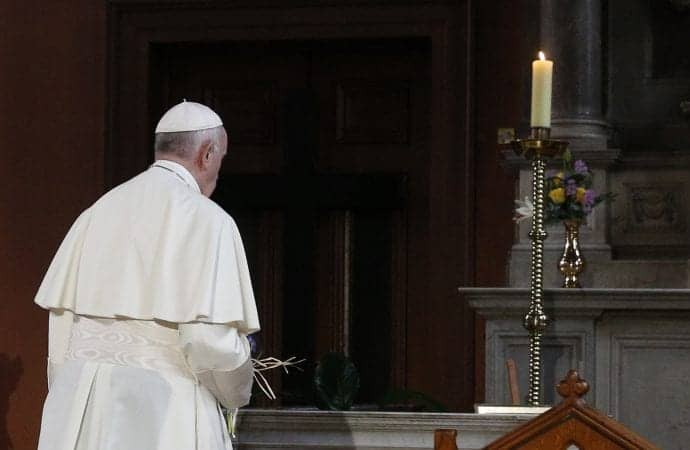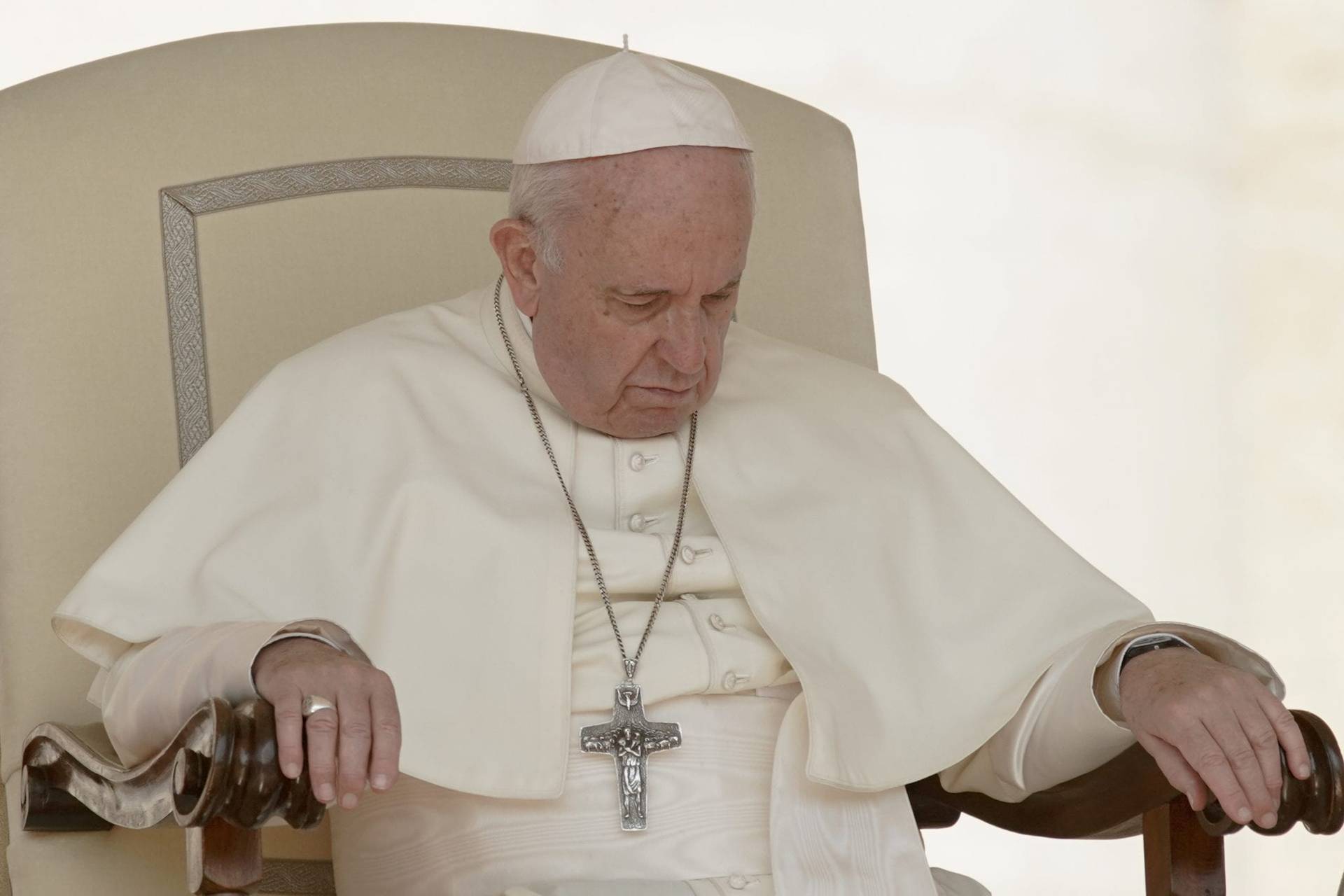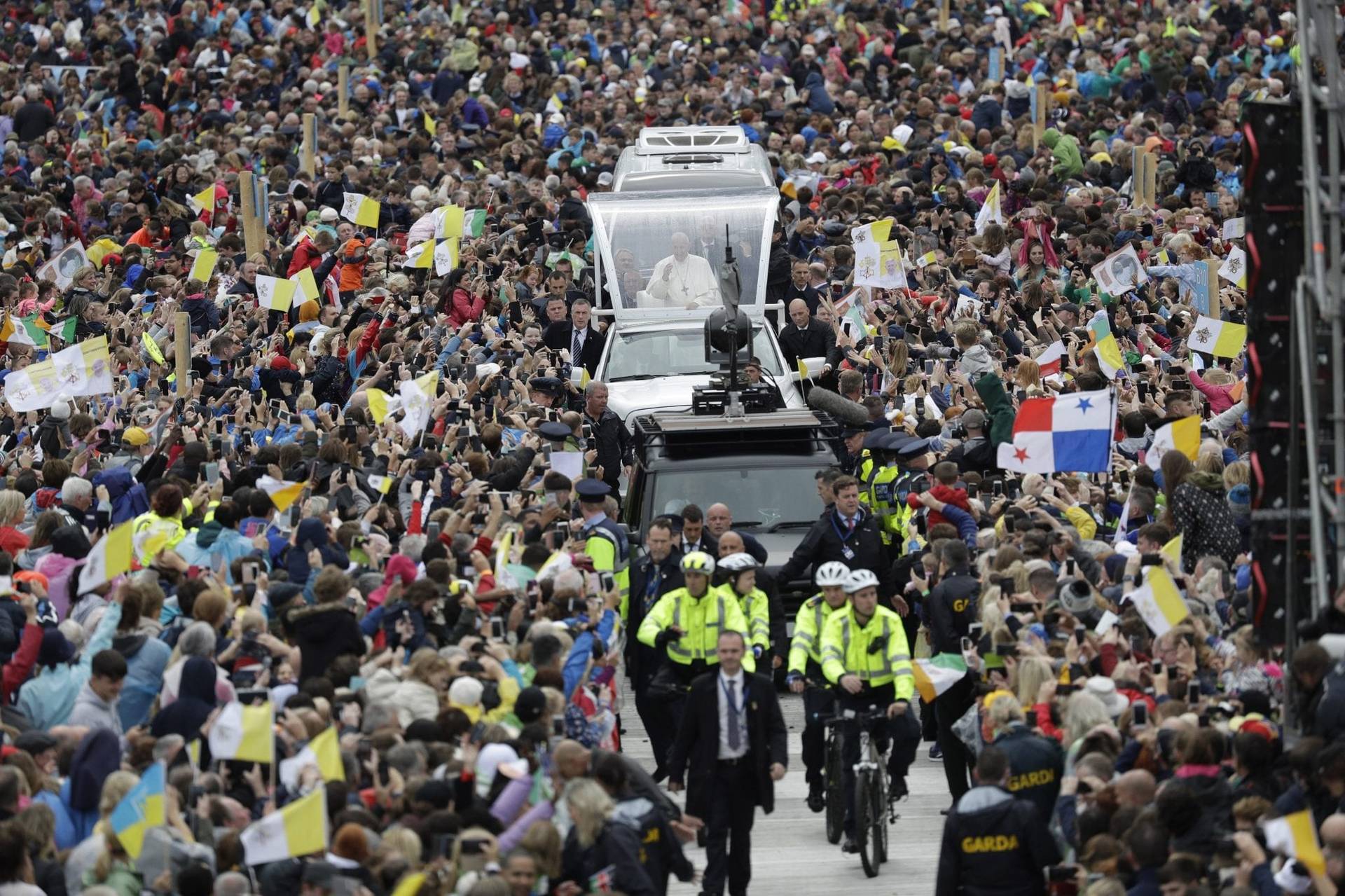DUBLIN — With Pope Francis set to begin a 32-hour visit to Ireland tomorrow, the eve of his arrival could be described as a sort of Good Friday, with the dark reality of the Church’s history of clerical sex abuse dominating the final day of the World Meeting of Families’ Pastoral Congress.
In a much-anticipated panel on “Safeguarding Children and Vulnerable Adults,” some of the Catholic Church’s most prominent crusaders for sex abuse reform argued that “words are sweet, but love means deeds.”
Those words — a variation of those of Saint Josemaría Escrivá, the founder of Opus Dei — were spoken by panelist Gabriel Dy-Liacco, a psychotherapist from the Philippines and a member of the Pontifical Commission for the Protection of Minors, to sum up the general consensus of the group.
To date, according to these panelists, Francis has indicated that he understands the depths of the crisis of clerical sexual abuse across the globe, especially following his rare letter on the topic to all Catholics earlier this week.
Yet for Dy-Liacco, who was joined by Baroness Sheila Hollins, a former member of the Pontifical Commission for the Protection of Minors from England; Marie Collins, an Irish survivor of abuse and former member of the Commission; and Barbara Thorp, the former head of The Office for Pastoral Support and Child Protection in the Archdiocese of Boston; the words of Church officials must now be turned into decisive action.
“The Most Crucial Issue Facing Our Church Today”
While Friday’s panel was already one of the most eagerly anticipated of the Pastoral Congress, it received even more attention following the news earlier this month that its previously announced moderator, Cardinal Sean O’Malley of Boston and head of the Pontifical Commission for the Protection of Minors, had to withdraw from participating in order to oversee an internal investigation into the abuse of seminarians at his archdiocesan seminary.
For many, his absence — along with the very reason for it — seemed to underscore the tempestuous nature of the issue in the Church today.
In a statement read by Hollins on Friday, O’Malley said the task of healing from the damage of sex abuse and reforming the Church’s policies in response to it, is “the most crucial issue facing our Church.”
“All endeavors of evangelization and other great works will be dependent on our ability to own our crimes and failings and to make the protection of vulnerable children and adults our number one priority,” the statement continued.
In recent days, however, O’Malley’s leadership of the Commission has been called into question. Most notably, in comments on Sunday, Archbishop Diarmuid Martin of Dublin, criticized the commission for not being robust enough in their operations — a comment viewed by many as a swipe at O’Malley’s direction.
In a press conference following the discussion, panelists vigorously defended O’Malley, with Dy-Liacco maintaining “What we have been able to get through is because of Cardinal O’Malley largely.”
Collins concurred and, without naming names, pointed the finger at other Vatican Curia officials who she believes have prevented the Commission from carrying out its proposals.
“At this point, it must be known who in the Vatican is resisting this and the pope must know who these people are,” said Collins. “Instead of calls for Cardinal O’Malley to be dismissed, these people must be dismissed.”
Accountability, Denial, and Red Herrings
Despite mounting a strong defense of the Commission’s leadership, a common theme that emerged on Friday was that many findings and recommendations put forth by the group — particularly plans for a tribunal to hold bishops accountable for their role in abuse — had been met with hostility by other members of the hierarchy.
“Recommendations, particularly to hold bishops accountable, were not welcome,” Hollins confessed, adding that there has also been “considerable denial” about the extent and nature of the problem of clerical sex abuse in many countries, which has hampered efforts for global reform initiatives.
“The truth is that abuse happens everywhere,” she insisted.
Collins echoed the frustration that many, particularly those inside the Church, refuse to acknowledge how pervasive the issue has been. While noting that individuals like her fellow panelists were not in need of a letter from the pope to confirm the reality of the crisis, she said she hopes that anyone skeptical of it will now consider his words to be a definitive say on the matter.
In calling for recognition of the vast nature of the problem, Collins said the attempts to single out gay priests as the root cause of clerical sex abuse was a “red herring.”
“Sexual orientation is not the issue here and it is not the cause,” she said at the press conference, lamenting that “some people may like to believe that.”
Dy-Liacco, drawing on his clinical psychotherapy work, agreed and said abuse comes from a “disordered use of power and affection” — adding that sex abuse is a “crime of opportunity.”
Recalling her own experience of taking part in the Vatican’s investigation into Ireland’s sex abuse crisis in 2010-2011, Thorp said that despite various circumstances and particular conditions around the world, “the searing truth is that if Archbishop Scicluna [the Vatican’s top investigator into multiple high profile sex abuse scandals], investigated around the world, he would return with the same shame-filled stories of sexual assault of children by clergy and betrayed trust by their bishops.”
Given that reality, Thorp called for an immediate end of the “callous indifference” to the “raging fire within the Church.”
Directly addressing Church leaders, to thunderous applause, she added, “The lay faithful are rooting for you to accomplish what’s right for our children.”
Keeping Children Safe in All Realms of Life
While Friday’s panel issued a forceful plea to Church leaders to get their house in order, just across the street from the official venue, another group of sex abuse survivors and advocates gathered to offer a different message.
At a press conference organized by Ending Clergy Abuse (ECA), Peter Isely, a survivor from Milwaukee, Wisconsin and founding member of Survivors Network of those Abused by Priests (SNAP), argued that “any progress that has been made on this issue…there’s one force that is responsible for it, and that is survivors of clergy sexual abuse.”
In response to the official panel of the World Meeting of Families, these individuals countered that both the Commission and the individual in charge of it had failed.
Rather than calling for O’Malley’s outright resignation, Isely suggested a leave of absence. While stopping short of endorsing Dublin’s Martin as his potential replacement, both Isely and Peter Saunders, an abuse survivor from England and former member of the Commission, suggested that Martin may possess “the qualities that might be needed,” based on his work in Ireland.
Isely went on to say that the current situation was a global crisis, demanding a global solution, and he put forth a three-step plan to that end: a change in canon law mandating zero tolerance for abuser priests and bishops, a zero tolerance policy for bishops who have helped cover up abuse, and a global registry, published by the Vatican, that makes public the names of any clerical sex offenders.
Yet while the panels differed in their assessment of leadership effectiveness and the utility of the Commission, the call for zero tolerance of priests and bishops alike, along with making public the names of those implicated in such crimes, actually proved to be a point of convergence.
In the words of Thorp, “If laws need to be changed, they should be changed. We should make way for what we all, everyone in this room and throughout the world, cares deeply about and that’s their children.”
As the clock ticked down to the pope’s arrival, both panels were adamant that it’s not a matter of whether time is running out for the Church to get this right, but whether or not it can make up for lost time.
“This is not just a Church issue, but the leadership of the Church is all the more important because this is such a pernicious problem throughout society,” Thorp said.
“Without our Church leadership and without us being a real beacon of hope in how we move forward with this, we are missing an extraordinary opportunity to not only keep children safe regarding clergy sexual abuse, but children safe in all realms of life,” she concluded.

















